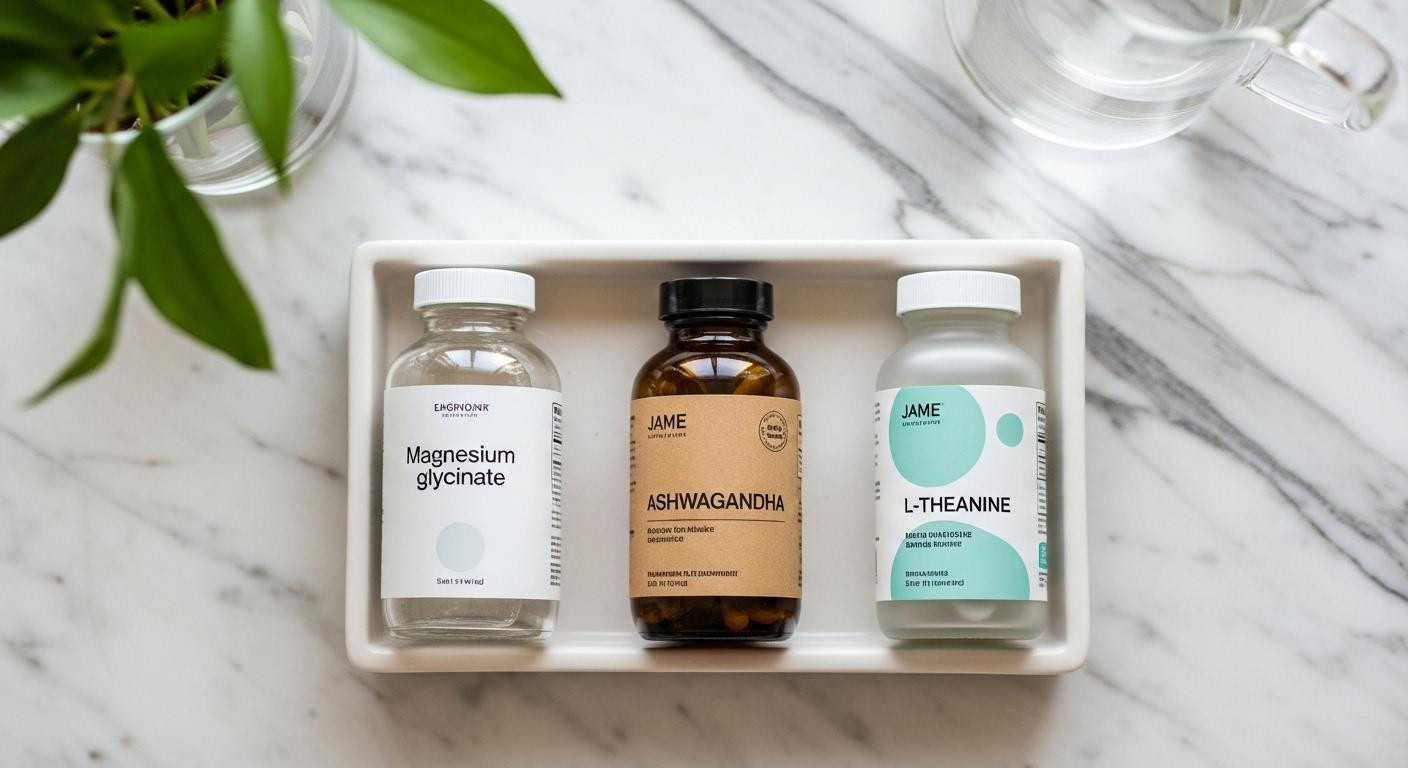When 70 million Americans struggle with sleep, most reach for melatonin first. Yet emerging research reveals it’s not the most effective option for many sleep issues. Clinical studies from 2025 show melatonin supplements failed to improve sleep duration or quality compared to placebo. Naturopaths with decades of clinical experience confirm that different sleep problems require different supplement mechanisms. Here are 10 science-backed alternatives your doctor should mention.
Why melatonin isn’t always the answer
Melatonin primarily regulates circadian timing, not sleep induction. A landmark 2025 study published in JMIR Formative Research definitively concluded melatonin supplements showed no significant improvement in sleep duration or sleep quality. Both 0.5mg and 3.0mg doses performed similarly to placebo across multiple intervention periods.
The American Academy of Sleep Medicine’s 2024 guidelines explicitly state clinicians should not use melatonin for chronic insomnia. Daytime sleepiness affects 1.66% of users according to comprehensive trial analysis. However, clinical practice reports show up to 25% experience residual drowsiness the next morning.
Melatonin doesn’t address hyperarousal states characteristic of anxiety-related insomnia. When patients have stress-induced sleep issues, elevated cortisol and sympathetic nervous system activation require different approaches. Magnesium targets these root physiological mechanisms more effectively.
The stress-sleep connection supplements
Ashwagandha: the evidence leader with 72% improvement rate
Clinical trials demonstrate ashwagandha’s superiority for stress-induced insomnia. Studies using 225mg daily dosage showed 72% of participants reported improved sleep quality after 30 days. The sustained-release formulation contains 15mg withanolides per 300mg capsule, targeting cortisol reduction pathways.
Research from multiple universities confirms ashwagandha works within 30-90 days for sustained results. Unlike melatonin’s immediate but limited effects, this adaptogenic herb addresses underlying stress mechanisms. Prices range from $15-25 for monthly supply, making it accessible for most budgets.
L-theanine: anxiety relief without drowsiness
This green tea amino acid offers unique benefits for anxious minds. L-theanine reduces nighttime awakenings without causing daytime sedation. Clinical research shows 200mg daily is safe for long-term use, with no dependency concerns reported.
Studies demonstrate L-theanine modulates alpha brain waves, promoting calm alertness during day and peaceful sleep at night. For those with stress-related migraines disrupting sleep, this supplement addresses both conditions simultaneously.
The physiological mechanism supplements
Magnesium: muscle relaxation pathway
Magnesium glycinate form proves superior to citrate for sleep applications. This essential mineral facilitates muscle relaxation and nervous system calming. Research confirms magnesium deficiency affects 75% of Americans, directly impacting sleep quality.
Clinical studies show magnesium works within 1-2 weeks for physical restlessness and muscle tension. Garden of Life magnesium costs $19.99 with 4.8/5 customer rating, offering glycinate form with optimal absorption rates.
Glycine: temperature-drop sleep trigger
This surprising amino acid works through body temperature regulation rather than neurotransmitter modulation. Research demonstrates 3 grams of glycine taken before bed facilitates deeper sleep stages by triggering natural temperature drops. Safety studies confirm up to 30 grams daily causes no adverse effects.
Glycine specifically improves sleep maintenance versus onset, making it ideal for those who fall asleep easily but wake frequently. Blood sugar stability also improves with glycine supplementation, addressing another common sleep disruptor.
Valerian: historical remedy with modern validation
Recent meta-analyses confirm valerian root’s sleep latency reduction effects. Clinical trials show 6-week timeline for optimal results, with $10-30 price range making it accessible. Traditional European use spanning centuries now has scientific backing from peer-reviewed research.
The emerging and specialized options
CBD shows promise for anxiety-specific sleep disruption, though evidence remains mixed. Chamomile offers mild calming effects combined with beneficial bedtime ritual aspects. Kava demonstrates potent sedative properties but requires medical supervision due to potential liver interactions.
Tryptophan converts to serotonin then melatonin naturally, providing gradual sleep support. Avoiding high-sugar evening beverages maximizes tryptophan effectiveness by preventing glucose spikes that disrupt natural sleep chemistry.
Sleep medicine practitioners emphasize these represent secondary options requiring more research. Always discuss medication interactions with healthcare providers before starting any specialized supplements.
Your questions about sleep supplements answered
Can I combine multiple sleep supplements safely?
Synergistic combinations like magnesium plus L-theanine show enhanced effectiveness. Ashwagandha pairs well with glycine for comprehensive stress and temperature regulation. However, start one supplement at a time to identify individual responses. Allow 2-4 weeks between additions to assess effectiveness accurately.
How long before I see results from natural sleep supplements?
Timeline varies by mechanism and individual physiology. Melatonin works immediately but limitations appear quickly. Magnesium shows effects within 1-2 weeks, while ashwagandha requires 30-90 days for full benefits. Valerian needs consistent 6-week usage for optimal sleep latency improvements.
Which supplement should I try first?
Decision framework depends on primary sleep issue identification. Stress-related problems respond best to ashwagandha’s cortisol modulation. Physical tension benefits from magnesium’s muscle relaxation properties. Racing thoughts improve with L-theanine’s calming effects. Circadian disruption may still warrant short-term melatonin under medical guidance.
Picture yourself three months from now: falling asleep within 20 minutes, sleeping through the night, waking refreshed without grogginess. Not from masking symptoms with medication, but from addressing the root cause with the right natural supplement your body actually needed.
